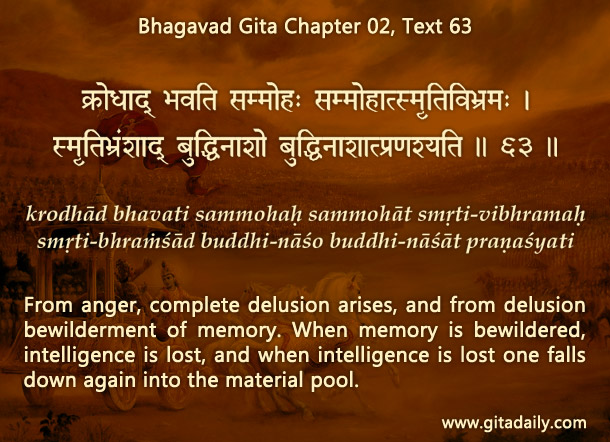To be conscious is to be desirous – our desires naturally drive our perceptions and actions. While traveling, when we desire to eat something, we naturally look for a restaurant.
However, to be conscious also means to be discerning: to discern which desires to accept and which to neglect. If we have diabetes, we will get sugar-free food, even if we see many tempting deserts.
However, desires can degrade our discerning faculty by first sneaking into our consciousness and then taking a driving place there. The Bhagavad-gita (02.62-63) cautions that whenever we contemplate a desirable sense object, that desire can gain such energy and momentum as to knock over our intelligence and conscience, and finally knock us over. With our intelligence and conscience sidelined, we act like mad, doing unconscionable things that we would normally never do. In retrospect, we may see such behavior as absurd, stupid, mad.
Consider a student preparing for an important upcoming exam. While studying, they get a casual desire to watch a video. Giving in, they watch one video, then another and then yet another – till that trivial surfing consumes all their study time. Later, when the consequences hit them, they view their thoughtless indulgence as insane.
We all are vulnerable to similar spells of insanity – just our distracting desires may be different. How can we protect ourselves from such madness? By preventing our mundane desires from becoming our driving desires. As we are always driven by our desires, we need to position our higher desires as our driving desires.
By studying the Bhagavad-gita and practicing bhakti-yoga, we get the intellectual conviction and devotional purification to install the desire to serve Krishna as our life’s driving desire. When we are thus spiritually driven, our mundane desires won’t be able to drive us mad.
To know more about this verse, please click on the image
Explanation of article:
Podcast:


Leave A Comment